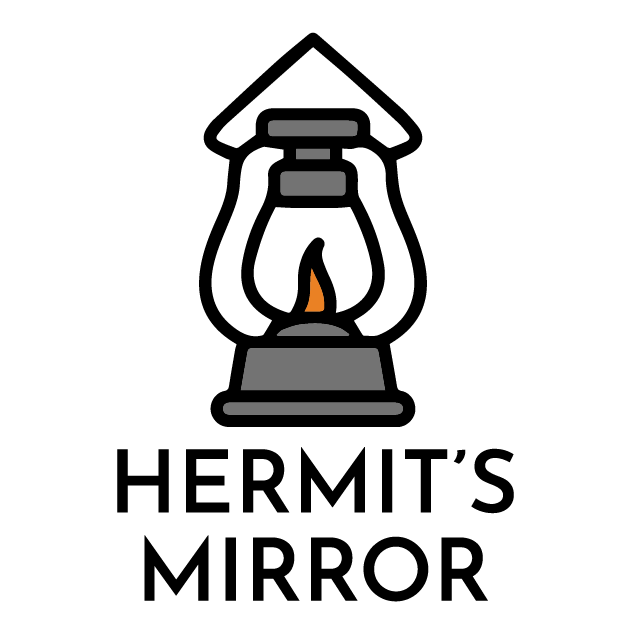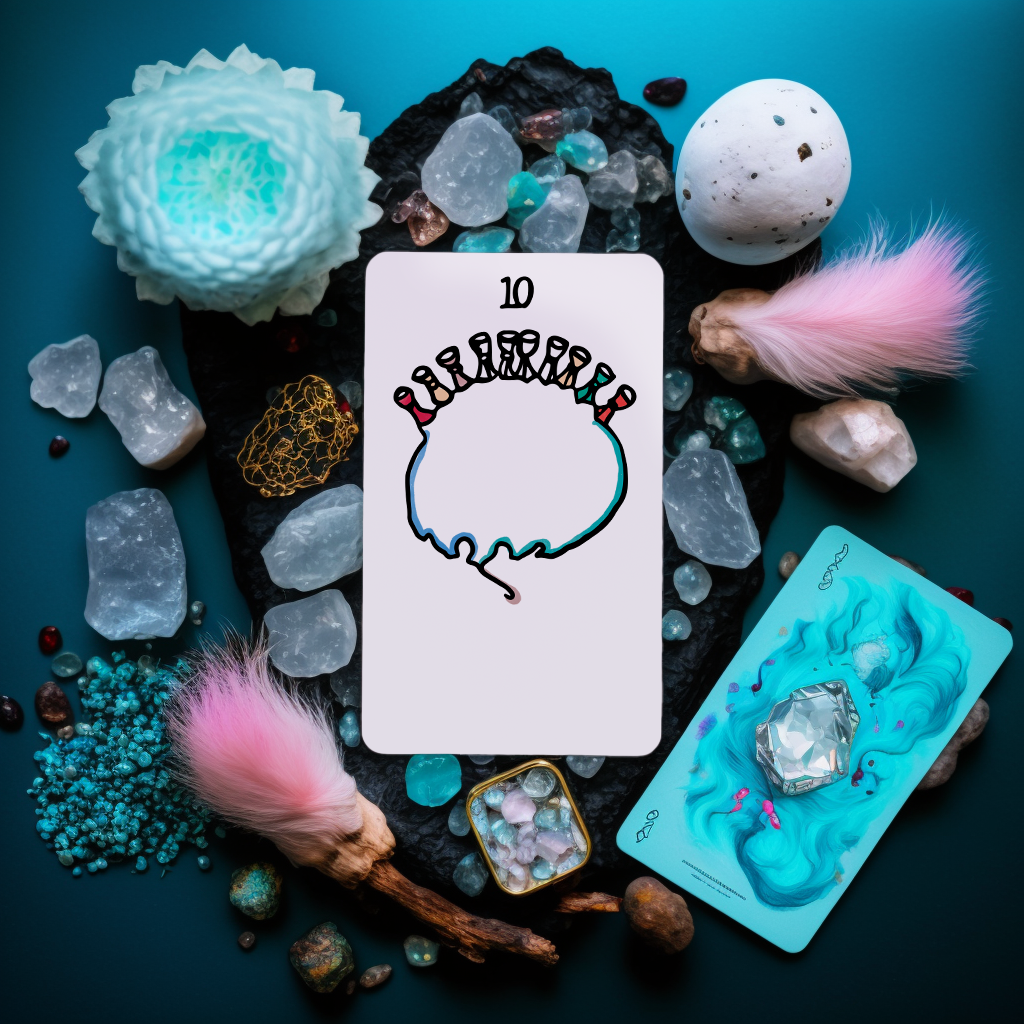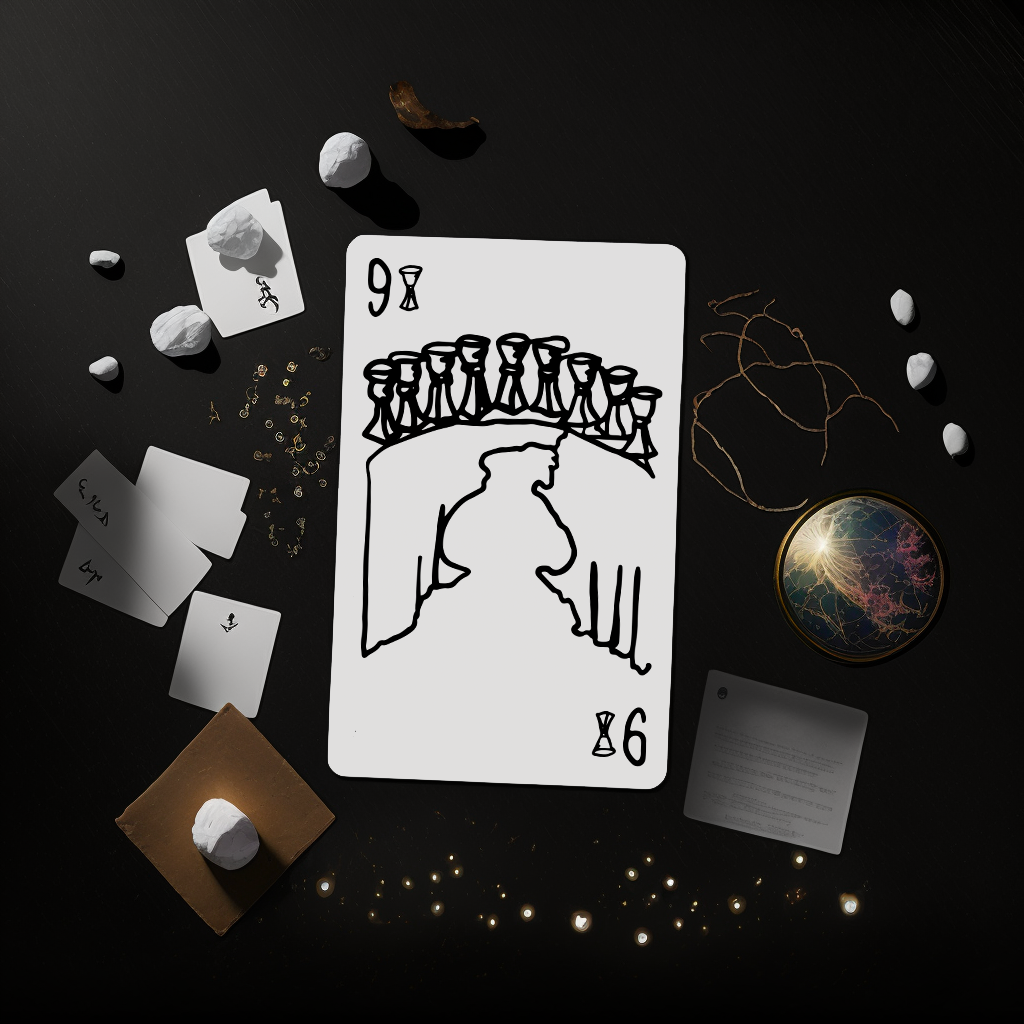Read Tarot Better with the How and Why Accordion
With How questions, you get practical. With Why questions, you see the reasoning.
Do you use all 5 Ws and 1 H when asking questions of the tarot?
Back when I was growing up, I learned the basic foundation of journalistic questions from a TV show called Nick News W5. The title comes from these 5 Ws—Who, What, Where, When, and Why—plus How. Since I never went into journalism, I didn’t think much of them.
But years later, two of these questions became critical to my professional development. I had started a career in student affairs, and my specialty was event planning, which means that I had to plan and implement the campus-wide events my division held and advise student groups who also focused on events. Early in this new job, I met with the outgoing dean, who introduced me to a strategy that has shaped how I think about advising, coaching, and tarot reading.
Ask “How” and “Why” up and down until you have no questions left about achieving your goal.
It sounds strange and artificial, maybe even simplistic, but I assure you that it’s a solid strategy for anyone looking for thorough answers to questions about a future event. And if you read tarot, that’s a helpful technique. Even if you don’t literally ask a question before you pull your first card, you’re looking for guidance about a future event. Hence, there is a question hidden in there somewhere. But that question is almost never the end-all-be-all of what you want to know.
Why not get curious about the question you’re asking? It will help you ask better questions.
If you’ve seen my tarot spreads, you know that there is almost always a specific question for each card, and they add depth to a bigger area of concern, what some people would consider their question. I don’t usually ask all 5 Ws and an H in my spreads because I’m not a journalist. But I do try to gather different types of information, which comes from asking different types of questions.
I am a coach and healer, so I focus on the How and Why. Most of my posted tarot spread questions start with “What” because that’s the question starter that most people feel comfortable answering with tarot: it feels objective and external, which is safer territory for many a reader. But the questions are often actually based on an implicit Why or How.
So then why the Why and how the How?
Why helps you determine rationale, motivation, and reasoning. How helps you articulate a specific process, usually based around taking action. Together, the Why gives you a high-level view of a situation and helps you see whether your stated aim aligns with your intended process (your How).
Asking Why and How in tarot does not necessarily mean using those specific words in a tarot spread, but it’s a valuable exercise to help you figure out what it is that you need to know. If you want to become a better tarot reader, learn to follow this How and Why “accordion” model, going back and forth or up and down between Why and How questions.
If you want a reading from a thoughtful and experienced professional like me, I’d love to meet with you: Book an appointment.
Please understand that it would not be appropriate to ask all these follow-up questions in an actual reading because you are essentially interrogating the question. The exercise will come across as judgmental to someone who is not grounded and secure in what they need, which is frankly most people. So practice this exercise with yourself and/or fictional querents to get to know what kind of information might be useful. Then in an actual reading with someone else, solicit some of that information directly with questions or indirectly while getting to understand the querent’s needs.
I have no doubt that your intuition will guide you to the areas that need you to dial in further. But doing this practice ahead of time will help you understand those intuitive nudges better. Let’s look at how this exercise works in one of the most common tarot reading areas, love.
This is a forced exercise of alternating between How and Why. Once you become comfortable with this practice, feel free to ask multiple How or Why questions in a row and even throw in the other Ws. But it’s good to practice using just How and Why because the application (How) and the rationale (Why) are where the real work gets done.
For each question in the scenario, I’ll provide a few different answers and then pick one to pursue for the next question. I encourage you to use your imagination and practice asking new questions based on the other answers I didn’t select.
Common situation: The querent wants to know when their ex is coming back.
First, you can absolutely pull a card to divine that information. There are 36 minor arcana that will give you a ten-day window based on astrological correspondences. There are 24 cards (12 major arcana and 12 court cards) that will give you a 30-day window. Another eight (the Aces and Pages/Princesses) will give you three months as options. That’s 68 cards with timing correspondences (you can learn more about them in another blog post). There are only 10 cards that don’t have a direct time-based correspondence, and you can still use astrological transits to figure out timing. So yes, you can answer that question.
However, that may not be all that would be helpful for Querent L to know. They’re making assumptions about what “coming back” means. And they’re asking “when,” not “if,” so there’s plenty more information that might be helpful for them.
Start to get into these areas, as well as their additional concerns, with a How or Why question. Unless you plan on pulling one card and just telling them the time frame associated with that card, you will want to figure out what else* they really want to know. And keep asking.
*I say “else” because you shouldn’t ignore what you think of as a bad question. I’ve done this in the past when I thought a question was simplistic or overly passive (to me, disempowering) or not within what I believe is possible for me to answer with the tarot (either because of skill or ethics). But it’s condescending and unfair to the person who has come to you with a true concern.
Querent L wants to know when their ex, X, is coming back to them.
Why does L want to know when X will come back? reasons.
L wants to be in a relationship with X again. (We’ll go with this one.)
L is scared of X and wants to leave town before they come back.
L knows that the relationship with X is on-again/off-again, and they don’t want to waste their time pursuing a new romantic interest if X will be back soon.
How will it help L to know when X is coming back to them?
L is feeling hopeless and wants to know that there is hope for happiness again.
L feels unlovable and wants to know that love is possible for them. (We’ll go with this one.)
L has to RSVP to their cousin’s wedding happening in two months and wants to know whether they should include X as their date.
Why is it important that L find love with this specific person?
L believes that X is their soulmate. (We’ll go with this one.)
L and X share financial and familial responsibilities, and L doesn’t want to have to deal with those complications if they’re not in a relationship.
L has never been in a long-term relationship with anyone else.
How does it feel for L to be in a relationship with their soulmate?
No one else has ever given L such intense orgasms.
The world feels more interesting and fulfilling to L, and things go the way they are supposed to go. To L, it feels like finding your destiny.
It feels as if they’ve found the one person in the world who can really understand what they’ve been through. (We’ll go with this one.)
Why is it important for L to find the one person who understands what they’ve been through?
L has found it difficult to make genuine connections with people.
L wants to create a life with someone with a similar background and mindset.
L doesn’t feel seen or appreciated by the other people in their life. (We’ll go with this one.)
How has X shown that they see and appreciate L?
X agreed to move in with L, and they were equal partners in the household for six months before breaking up.
L was welcomed into X’s family and invited to all the family gatherings until they broke up. (We’ll go with this one.)
X always complimented L’s appearance and made them feel talented.
Why does being included in their partner’s family mean so much to L?
The large family dinners and get-togethers reminded L of simpler times when they were younger and closer (emotionally and geographically) to their own family.
L grew up an only child in a single-parent household, so it was nice to have a larger group of people who were invested in their well-being outside of peer-age friends. (We’ll go with this one.)
It showed L that X was committed to them in the long run and not just a casual fling that they would never bother bringing home to meet their parents.
How could L find that net of social support through other relationships?
We could go on, but there’s plenty to work through here with our querent to help them get the information that they need to be in a relationship where they feel understood and appreciated and connected with a social support system. And that could take the entirety of our time together. There’s certainly a lot we can cover by looking at this particular relationship beneath the surface if we’re really curious.
You can see how this could go in so many different directions at any point, and that initial question of when the ex is coming back isn’t always actually the most important information. Sometimes it is, and you may want to do some follow-up to figure out how to support the querent in arriving at their goal. But sometimes that initial question is based on a faulty assumption about what’s required for a desired outcome.
You’ll note that this back-and-forth never questions the querent’s beliefs directly. I did not, for example, ask the querent directly to define what a “soulmate” is or ask why they believe that there may just one person in this world for them. I may ask that of my friend in a similar situation, but the tarot reader–querent relationship is not a casual friendship, however close I may be to the querent outside of the reading. In a tarot reading, I am holding space for someone who is bringing their energy to me to help divine answers to questions they have. As a result, their beliefs may differ from my own.
In this scenario, I need to understand what assumptions underlie their belief about a soulmate so that the querent and I can communicate clearly, but I don’t need to start an argument about the historical basis for the concept of soulmates in Hinduism as distinct from Western oversimplification. That doesn’t serve the purpose of the reading. It only serves my ego. If I feel that I can’t overcome my aversion to their beliefs, then I shouldn’t read for them. It would not be ethical because I am carrying my own baggage into their reading, and it would not be in alignment with my own values. Know your own boundaries on that front.
You may also have noticed that I didn’t poke and pry into painful areas for this querent. This querent didn’t come to me with a question about investigating their past traumas, and I haven’t received consent from them to dig into that past yet, so it would not be right to force them to confront it right now. It doesn’t matter that I personally believe that they will probably continue to run into relationship problems and feelings of under-appreciation or disconnection if they don’t continually do their shadow work. Perhaps we’ll get there during the reading, but it may not be the right time or situation for that conversation. Just recognizing that there may be something specific that they can look for in a partner that isn’t this one individual may be a big enough revelation to start the querent on a new journey of self-worth. Let them build up their strengths so that they have something to rely on while doing the deeper inner work.
As I said before, this is a forced exercise that does not replicate a real tarot reading, but it does help your mind and intuition open to different possible avenues. It also helps you identify possible assumptions that the querent might have and that you might have based on what you think a querent is looking for. Unless you’re psychic in the most dramatic sense, you’ll probably need to do a little back and forth with the querent as you lay down the cards, so it’s good to be prepared for the sorts of questions lie beneath the surface of the primary question.
If you’re looking for a reading from me or private divination lessons, let’s get you scheduled!
And if you’re ready to use the tarot to get answers to the questions that matter most to who you are and how you want to achieve your goals, you should consider Tarot to Transform Your Life, my three-month small-group coaching program. It’s a three-month investment that will guide you in using tarot to make the most of your personal energies and universal energies as they flow around and through you.




